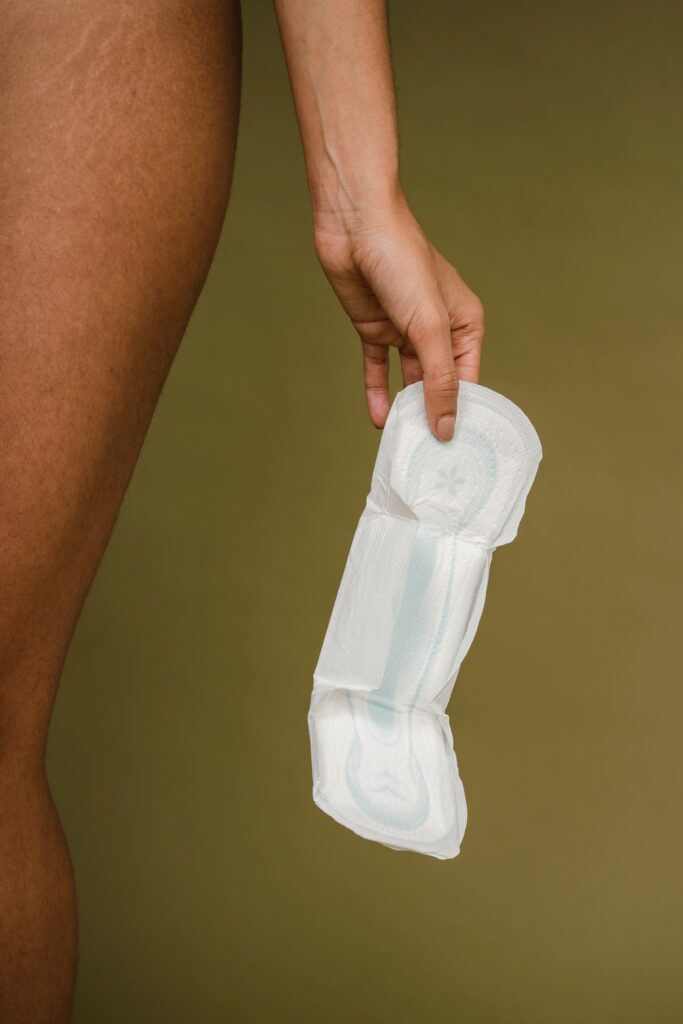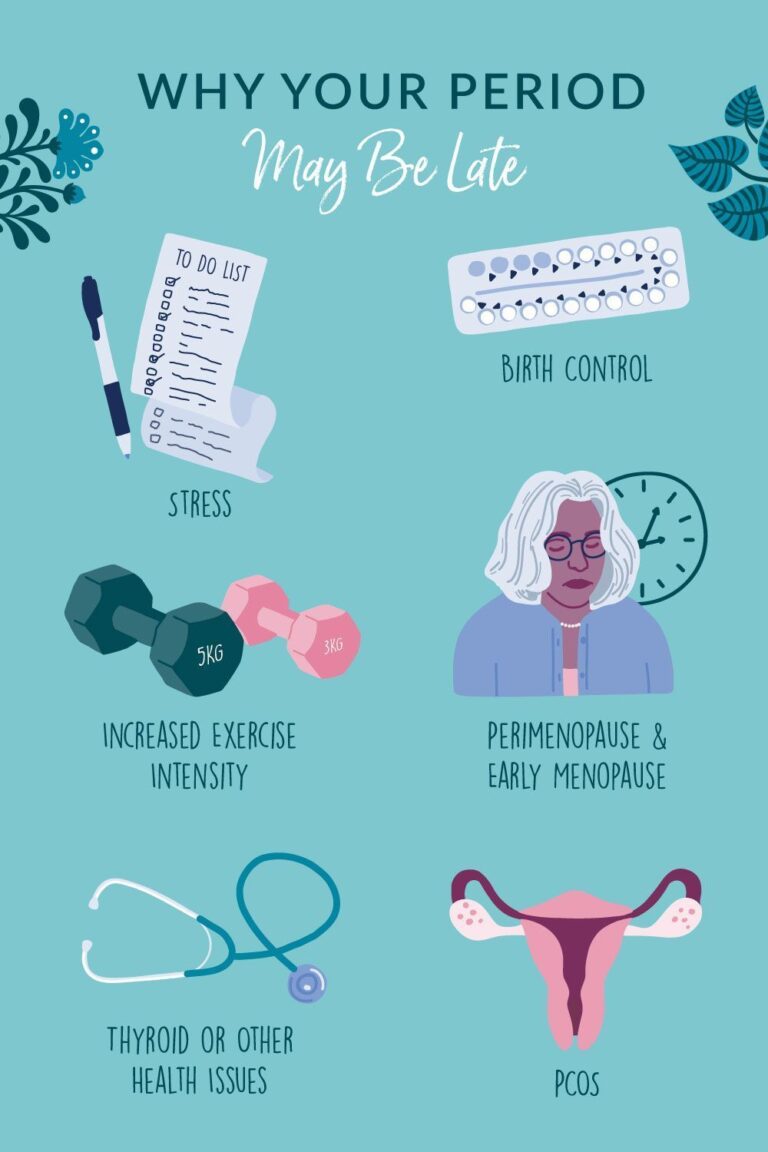Why Is My Period Late Reasons And Remedies: All About Periods
Women’s periods, also known as menstruation, is a natural bodily function that occurs on a regular basis for most women of reproductive age. It is a process in which the uterus sheds its lining, which results in bleeding from the vagina. The menstrual cycle is typically 28 days long, but can vary from person to person, and can be affected by various factors such as stress, illness, or changes in weight. Menstrual blood is made up of blood, tissue, and other fluids that exit the body through the cervix and vagina.
It is important for women to understand their menstrual cycle and any changes in their period, as this can indicate underlying health issues or hormonal imbalances. Common menstrual problems include painful periods, irregular periods, heavy bleeding, and premenstrual syndrome (PMS).
Women can manage their periods by using various menstrual products such as pads, tampons, menstrual cups, or period underwear. They can also track their menstrual cycle using period-tracking apps or calendars to help predict their next period and plan accordingly. Overall, it is important for women to have access to information and resources about their menstrual cycle, as it is a natural and important part of their reproductive health.
Cycle Of Normal Period
A normal menstrual cycle typically lasts between 21 and 35 days, with an average cycle length of 28 days. However, every woman’s menstrual cycle can vary, and it’s not uncommon to have some irregularities.
The menstrual cycle is divided into three phases:
1. Follicular phase: This phase begins on the first day of your period and typically lasts between 7 and 14 days. During this phase, the body prepares for ovulation by building up the lining of the uterus and maturing an egg in one of the ovaries.
2. Ovulatory phase: This phase usually lasts for one or two days and occurs around day 14 of a 28-day cycle. During this phase, the matured egg is released from the ovary and travels down the fallopian tube, where it may be fertilized by sperm.
3. Luteal phase: This phase begins after ovulation and lasts for about 14 days. During this phase, the empty follicle in the ovary turns into a structure called the corpus luteum, which produces hormones that help maintain the uterine lining in preparation for a potential pregnancy. If the egg is not fertilized, the corpus luteum breaks down, hormone levels drop, and the uterine lining sheds, resulting in a period.
Overall, a normal menstrual cycle should be relatively consistent in length and duration, but some variations may occur due to factors like stress, illness, or changes in weight or hormonal balance.
How Much Of A Delay Is Normal In Periods?
A normal menstrual cycle typically ranges from 21 to 35 days, with an average length of 28 days. However, it is common for some women to experience slight variations in their menstrual cycle length from month to month, which can cause some delay in the onset of their period.
Generally, a delay of up to 7 days is considered normal, and can be due to factors such as stress, changes in diet or exercise, or hormonal fluctuations. If your period is delayed for more than 7 days, it may be a good idea to speak with your healthcare provider to rule out any underlying medical conditions.

Possible Reasons For Late Period
Pregnancy: If you are sexually active, pregnancy could be the most obvious reason for your Period Late. You can take a pregnancy test to confirm.
Stress: High levels of stress can cause hormonal imbalances that disrupt the menstrual cycle.
Weight changes: Significant weight gain or loss can cause hormonal imbalances that disrupt the menstrual cycle.
Polycystic ovary syndrome (PCOS): A hormonal disorder that can cause irregular periods or missed periods.
Thyroid issues: An underactive or overactive thyroid gland can affect the menstrual cycle.
Breastfeeding: Hormonal changes during breastfeeding can delay the return of menstruation.
Perimenopause: The transition phase to menopause can cause irregular periods or missed periods.
Menopause: When menstruation stops completely, usually around age 50.
Certain medications: Birth control pills, hormonal medications, and some antidepressants can affect the menstrual cycle.
Excessive exercise: Intense exercise or over-exercising can cause hormonal imbalances that disrupt the menstrual cycle.
Travel: Jet lag, changes in time zones, and stress related to travel can disrupt the menstrual cycle.
Illness: High fever or other illnesses can affect the menstrual cycle.
Ovarian cysts: Noncancerous cysts on the ovaries can cause missed periods.
Uterine fibroids: Noncancerous growths in the uterus that can cause heavy bleeding and missed periods.
Endometriosis: A condition in which the tissue that lines the uterus grows outside of it and can cause pain and irregular periods.
Pelvic inflammatory disease (PID): An infection in the reproductive organs that can cause missed periods.
Certain cancers: Certain types of cancer can cause missed periods.
Anemia: A lack of iron in the body can cause irregular periods or missed periods.
Diabetes: Uncontrolled diabetes can affect the menstrual cycle.
Celiac disease: A digestive disorder that can affect nutrient absorption and disrupt the menstrual cycle.
Ovarian insufficiency: A condition in which the ovaries do not produce enough estrogen and can cause missed periods.
Premature ovarian failure: A condition in which the ovaries stop functioning before the age of 40 and can cause missed periods.
Asherman’s syndrome: A condition in which scar tissue forms inside the uterus and can cause missed periods.
Chronic kidney disease: Kidney disease can affect the menstrual cycle.
Hypothalamic amenorrhea: A condition in which the hypothalamus in the brain stops signaling the ovaries to release eggs and can cause missed periods.
Certain herbal remedies: Some herbal remedies, such as vitex and dong quai, can affect the menstrual cycle.
Low body weight: Being underweight can cause hormonal imbalances that disrupt the menstrual cycle.
High body weight: Being overweight can cause hormonal imbalances that disrupt the menstrual cycle.
Smoking: Smoking can affect the menstrual cycle.
Alcohol or drug use: Substance abuse can affect the menstrual cycle.
It is important to consult with a healthcare provider if you experience consistently irregular periods or have concerns about your menstrual cycle. They can help determine the underlying cause and recommend appropriate treatment.
What To Do When Periods Are Late
Take a pregnancy test: If you’re sexually active, taking a pregnancy test is the first thing you should do if your Period Late.
Check your birth control: If you’re using hormonal birth control, check that you’re taking it correctly and at the same time each day.
Reduce stress: High levels of stress can affect the menstrual cycle, so try to manage your stress levels with relaxation techniques like meditation or yoga.
Maintain a healthy weight: Significant weight changes can affect the menstrual cycle, so aim to maintain a healthy weight.
Get enough sleep: Poor sleep habits can also affect the menstrual cycle, so make sure you’re getting enough restful sleep.
Eat a balanced diet: Eating a balanced diet with plenty of fruits, vegetables, and whole grains can help support healthy hormone levels.
Stay hydrated: Drinking plenty of water and other fluids can help keep the body hydrated and support a healthy menstrual cycle.
Exercise regularly: Regular exercise can help regulate hormone levels and support a healthy menstrual cycle.
Track your menstrual cycle: Use a period-tracking app or calendar to help you keep track of your menstrual cycle and identify any changes.
Consult a healthcare provider: If your period is consistently late or irregular, it’s important to consult with a healthcare provider to rule out any underlying health conditions.
Try herbal remedies: Some herbal remedies, such as ginger or chamomile tea, may help support a healthy menstrual cycle.
Avoid alcohol and drugs: Substance abuse can affect the menstrual cycle, so avoid alcohol and drug use.
Take a break from hormonal birth control: If you’ve been using hormonal birth control for a long time, taking a break may help reset your menstrual cycle.
Manage any underlying health conditions: If you have an underlying health condition that’s affecting your menstrual cycle, make sure you’re getting the appropriate treatment.
Practice self-care: Taking care of yourself with practices like self-massage, warm baths, or other forms of self-care can help reduce stress and support a healthy menstrual cycle.
FAQs
1. What is considered a late period (Period Late)?
A- period is considered late if it hasn’t arrived within five to seven days of its expected due date.
2. What are some common reasons for a late period (Period Late)?
Some common reasons for a late period (Period Late) include pregnancy, stress, weight changes, hormonal imbalances, and certain medications.
3. Can stress cause a late period (Period Late)?
Yes, high levels of stress can affect the menstrual cycle and cause a late period (Period Late).
4. Can weight gain or loss cause a late period (Period Late)?
Yes, significant weight changes can affect the menstrual cycle and cause a late period.
5. Can medications cause a late period (Period Late)?
Yes, certain medications, such as hormonal contraceptives, antidepressants, and thyroid medications, can affect the menstrual cycle and cause a late period.
6. Can exercise cause a late period (Period Late)?
Intense or excessive exercise can affect the menstrual cycle and cause a late period.
7. Is a late period always a sign of pregnancy?
No, a late period can have many different causes and pregnancy is just one of them.
8. How long should I wait before taking a pregnancy test if my period is late?
You should wait at least one week after your period is late before taking a pregnancy test.
9. What should I do if my period is consistently late or irregular?
If your period is consistently late or irregular, you should consult with a healthcare provider to rule out any underlying health conditions.
10. Can herbal remedies help regulate a late period (Period Late)?
Some herbal remedies, such as ginger or chamomile tea, may help support a healthy menstrual cycle, but it’s important to consult with a healthcare provider before using any new remedies.
11. Can a late period be a sign of early menopause?
Yes, a late period can sometimes be a sign of early menopause, especially if you’re in your 40s or 50s.
12. Can a late period be a sign of an ectopic pregnancy?
Yes, a late period can sometimes be a sign of an ectopic pregnancy, which is a serious medical condition that requires immediate medical attention.
13. Can birth control pills cause a late period (Period Late)?
Yes, hormonal birth control pills can affect the menstrual cycle and cause a late period.
14. Can a late period cause infertility?
A single late period is unlikely to cause infertility, but consistent irregularities in the menstrual cycle can sometimes be a sign of underlying fertility issues.
16. When should I seek medical attention for a late period (Period Late)?
If your period is consistently late or irregular, or if you experience other symptoms like severe cramping, heavy bleeding, or unusual discharge, you should consult with a healthcare provider to rule out any underlying health conditions.


